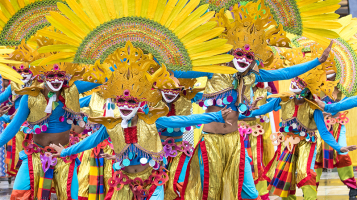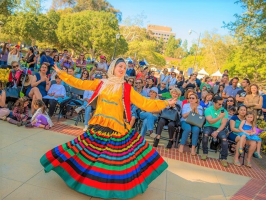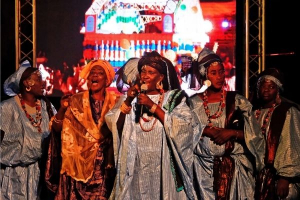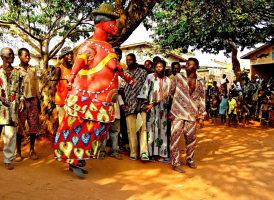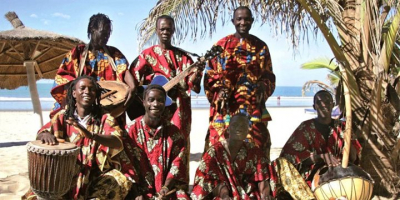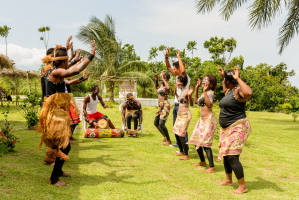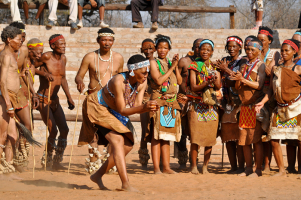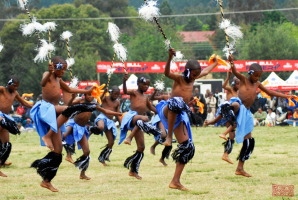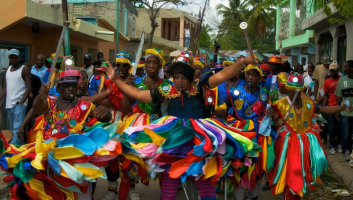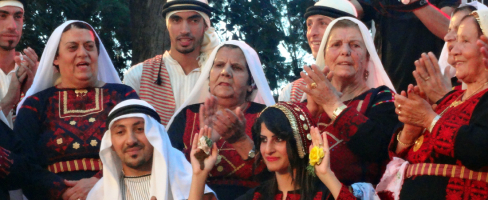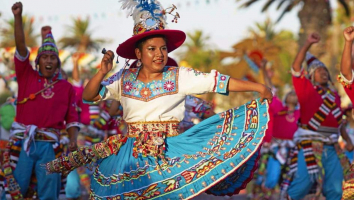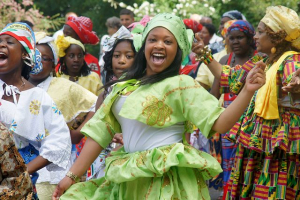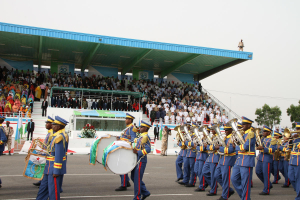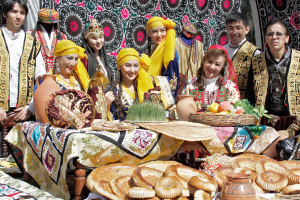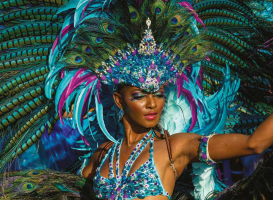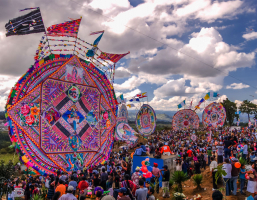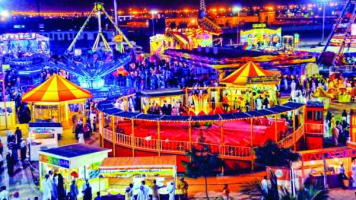Top 4 Most Famous Festivals in Sudan
Sudan's holidays and festivals are based on the Islamic calendar, as it is an Islamic country. Important days, such as the Prophet Mohammed's birthday, Mawlid ... read more...an-Nabi, and Eid al-Fitr, which commemorates the end of a month of fasting, are celebrated widely throughout the country. However, there are a few non-Islamic gatherings that celebrate common cultures and life's pleasures. Here Toplist brings to you the most famous festivals in Sudan.
-
Al-Mawlid, also known as Mawlid Al Nabi Al Sharif, was recently observed by millions of Muslims all over the world. Al-Mawlid is the commemoration of Prophet Mohammed's (PBUH/SAW) birthday, which falls in the third month of the Islamic calendar, Rabie Al-Awal. Al-Mawlid is observed by Sunnis on the 12th Rabie Al-Awal and by Shias on the 17th Rabie Al-Awal.
Many Muslim countries recognize Al-Mawlid as a national holiday, except for a minority that oppose its observance, thinking that Muslims are only allowed to celebrate two Eids: Eid Al Fitr and Eid Al Adha. While some Muslim academics and governments consider it haram or religiously banned, Al-Mawlid is widely celebrated in Muslim countries such as Egypt, Morocco, Libya, Iraq, Turkey, Pakistan, and Sudan. This also one of the most famous festivals in Sudan.
Observers congregate in the streets to hear stories about the prophet, pray, feast, share colorful Al-Mawlid candy and toys, and listen to traditional songs about the prophet and Islam until the wee hours of the morning.
Halqat Zikr and madeeh are held during these days by the sheiks. Madeeh is an a cappella procession done with local instruments to convey adoration, love, and devotion to Allah and Prophet Mohammed. It is not to be confused with zikr. Educational activities are also part of the celebrations, with religious leaders giving lectures on the prophet's life and teachings. In addition, throughout the holiday, Quran recitations and other religious activities are conducted. The festivities begin with Zafat Al Mawlid, a colorful and joyful parade that takes place after Asr prayers and signals the start of the festivities.
Families also prepare for the day at home and attend parties with special dishes. Children dress up in their finest attire, as they do for any Eid.Dates: October
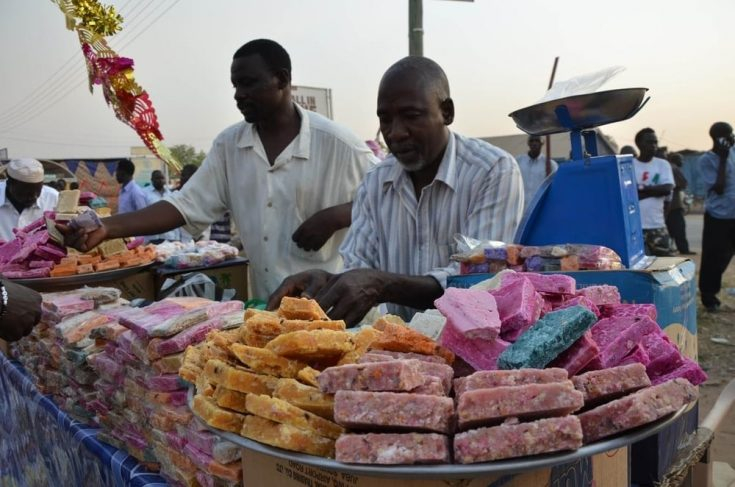
Photo: 500wordsmag 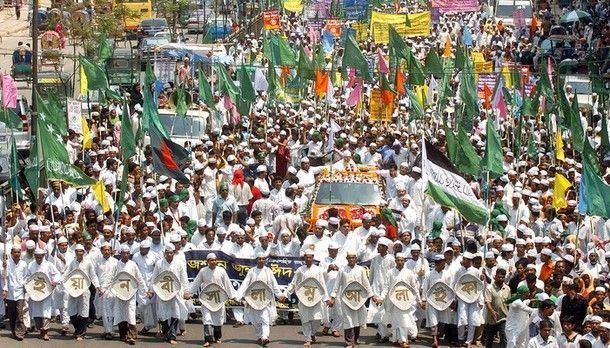
Photo: alchetron -
Eid al-Fitr, also known as al-d al-aghr, Turkish Ramazan Bayrami ("Ramadan Festival"), is the first of Islam's two canonical festivals. The end of Ramadan, the Muslim holy month of fasting, is commemorated during the first three days of Shawwal, the Islamic calendar's tenth month (though the Muslim use of a lunar calendar means that it may fall in any season of the year). It is distinguished from Islam's other holy festival, Eid al-Adha, by the performance of community prayer at sunrise on the first day.
Eid al-Fitr is a time of official receptions and private visits, during which friends meet one another, gifts are exchanged, new clothing is worn, and relatives' graves are visited. The main events on the day are largely family-based, with families gathering for a veritable feast, the exchange of gifts, and a look back at the month and what it meant in their lives.
Dates: May
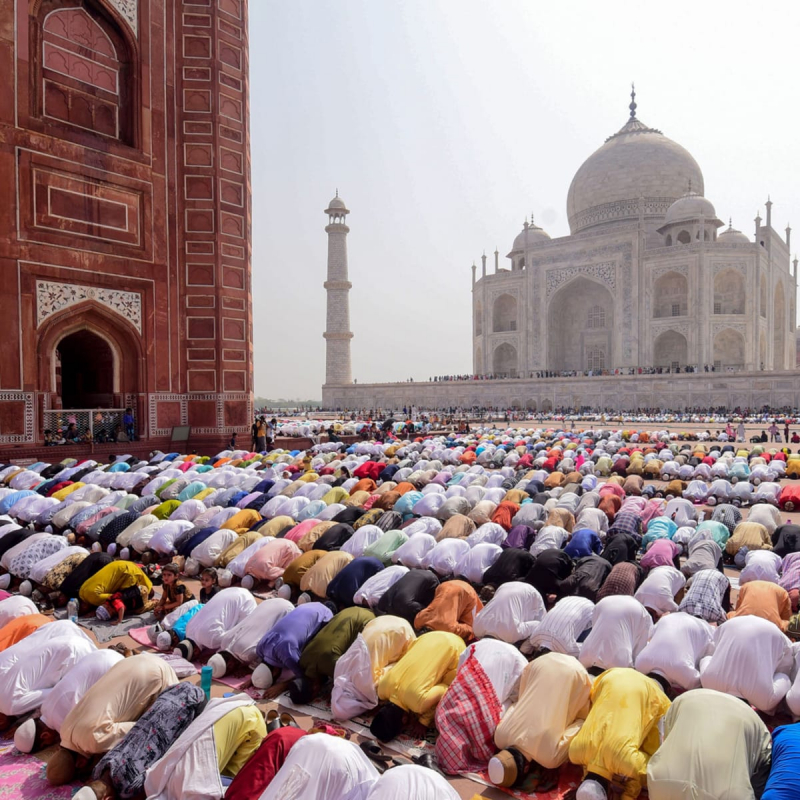
Photo: history 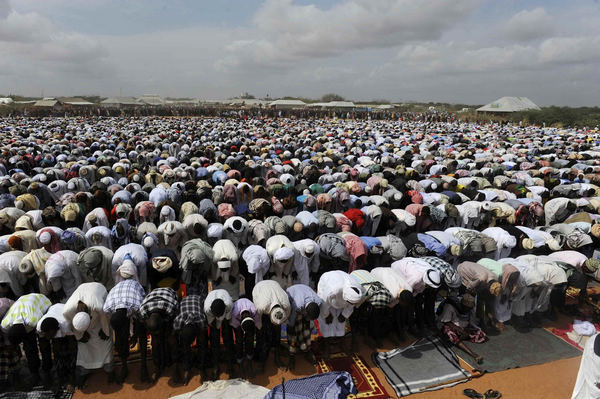
Photo: europe.chinadaily -
The 'Feast of Sacrifice,' also known as Eid al-Adha, is the most important feast in the Muslim calendar. Al Eid Al Kabeer, which translates to "Grand Eid," is another name for the holiday. Even while most nations observe roughly the same amount of public holidays for both Eids, it has a higher religious value because it lasts for four days against one day for Eid Al Fitr. Certainly it is one of the most famous festivals in Sudan.
This holiday is held all throughout the Muslim world to commemorate Prophet Abraham's willingness to give up all for God. Eid al-Adha occurs on the tenth day of Dhu al-Hijjah, the Islamic calendar's twelfth and final month. Because the exact day is determined by lunar sightings, the date may differ from country to country.
The Pilgrimage to Mecca comes to an end with Eid al-Adha. The three-day Eid al-Adha festival honors Ibrahim's (Abraham's) desire to obey God by sacrificing his son. Muslims commemorate Ibrahim's obedience by sacrificing a cow or ram at the Eid Al Adha feast. A third of the dinner will be consumed by the family, a third will be shared with friends and relatives, and the remaining third will be donated to the poor and needy. Another important practice of Eid al Adha is to provide charity to the homeless or impoverished in the form of money, food, or clothing.
Dates: July
Source: Tibyan El Fateh youtube channel Source: ye Radio South Sudan youtube channel -
The traditional Sufi music and dancing event takes place in October as well. The Sufi Holiya festival is a celebration of cultural brotherhood and family on a large scale. The celebration, which is held in honor of Sudanese saints and sheiks, is marked by the gathering of people of different ethnicities and social classes who dance and hug in the streets. Hadra is the name of this segment of the festival.
The Sufi Holiya festival attendees chant traditional hymns and songs, known as qasaids, and participate in a massive parade that passes through several culturally significant monuments. This is one of the most spiritually uplifting and inspiring customs to witness in the region for visitors.
Dates: October
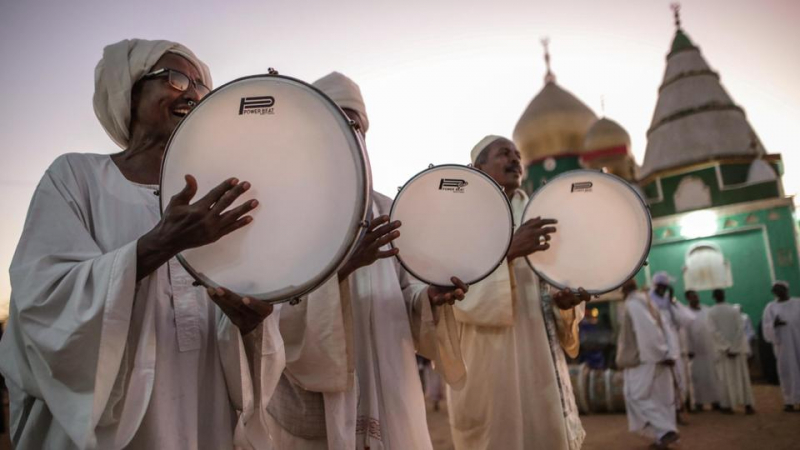
Photo: trtworld Siurce: Ash Bhardwaj youtube channel






